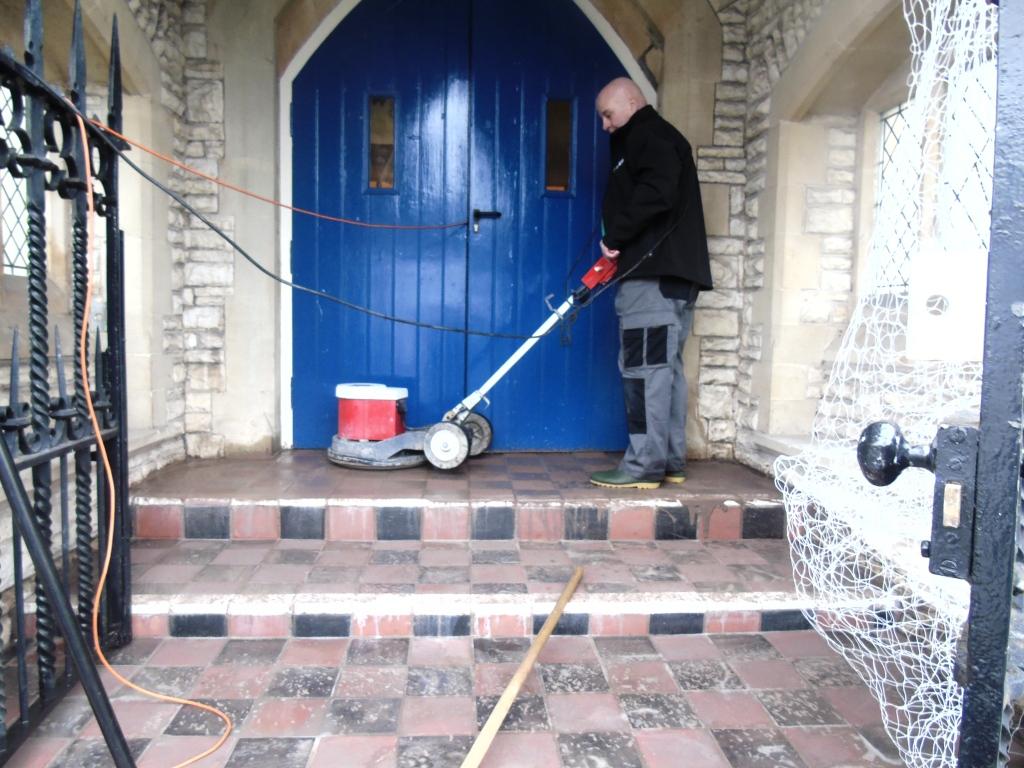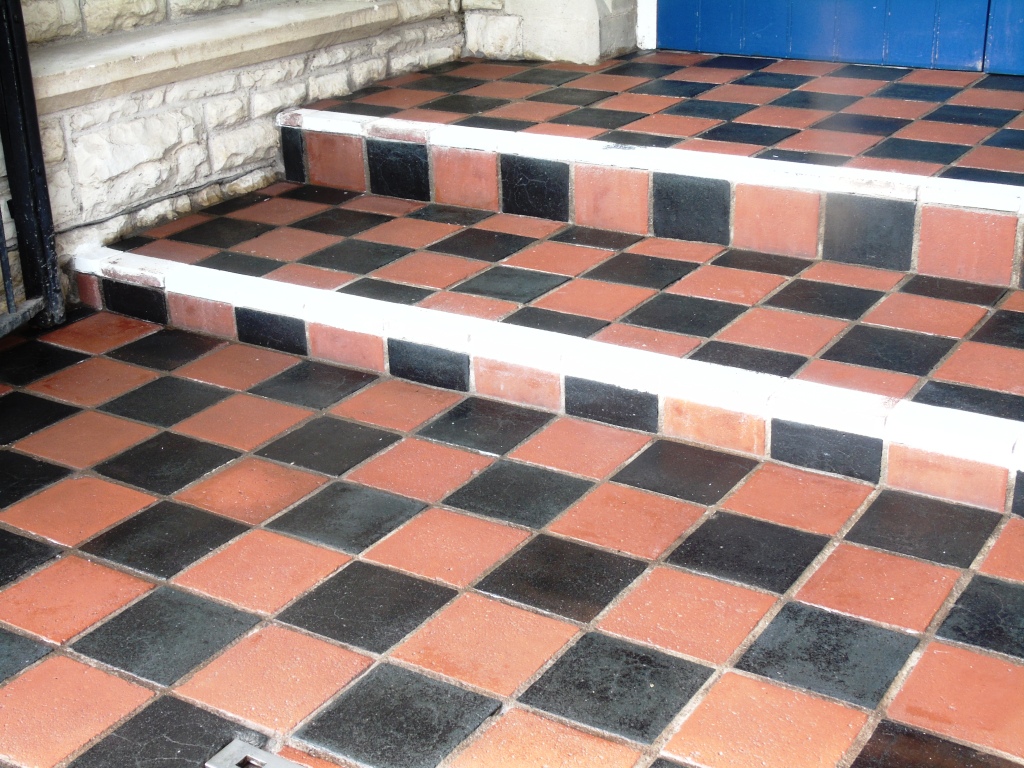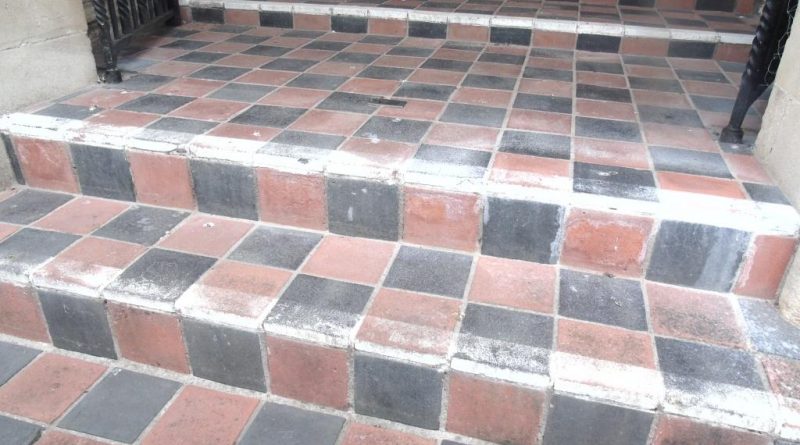Restoring old Church Steps in Gloucestershire
Tewkesbury, the town and civil parish in Gloucestershire, is famous for the Tewkesbury Abbey, a Norman abbey church dating back to the 7th century so it has a lot of history and some very old buildings. Although not one of the oldest buildings in the town I was recently called to a small church in Tewksbury to restore the Quarry tiled entrance way dating back to the 1850s. The tiles had become very heavily ingrained with pigeon droppings, paint, cement, and general dirt over the years – and they were well past due for some professional attention.
Deep Cleaning Dirty Quarry Tiled Steps
My first job was to scrape away all the excess pigeon droppings and paint that could be removed by hand. Once the floor was clear, I was able to cover it with a strong solution of two of our cleaning products: Tile Doctor Remove and Go and Tile Doctor NanoTech HBU. While the cleaners are similarly powerful, they serve slightly different purposes.
Remove and Go is specially designed to strip away any old sealers, synthetic finishes, adhesives, cements, and paints. It also helps to draw old ingrained stains and remove heavy grease build-up. NanoTech HBU on the other hand is a penetrating cleaner designed to work where other cleaners won’t. It does this by utilizing nano-sized particles to reach underneath tough stains, dissolve them, and lift them out. Both products are suitable for use on polished and unpolished natural stone, including Limestone, Marble, Slate, Travertine and, of course, Quarry.
The cleaning solution was left to dwell for 45 minutes and then scrubbed into the tiles using a black pad fitted to a buffing machine. I then repeated this process with the same products to clean the grout lines. When I was happy with the overall cleanliness of the tiles, I spot cleaned some particularly stubborn stains using a steam cleaner in combination with a handheld scraper and some more NanoTech HBU.

Sealing a Quarry Tiled Entrance Way
After finishing the cleaning process, I left the tiles to dry for two days. The tiles needed a good amount of time to dry completely because the old tiles don’t have the reasonably modern benefit of a damp-proof membrane.
Upon my return to the church I checked for any damp issues, and when satisfied that there weren’t any to deal with, I proceeded to seal the tiles using four coats of Tile Doctor Colour Grow. This is an impregnating sealer that enhances the natural colours in the Quarry tiles and provides the natural look, matte finish that the proprietor of the church had requested.
As you can see from the photo below, the result of the restoration was transformational. Needless to say, the parishioners will be very happy with the rejuvenated entrance way and, thanks to a highly durable sealant, the steps will be protected for the long term.

Source: Tile and Grout Cleaning and Restoration in Gloucestershire
